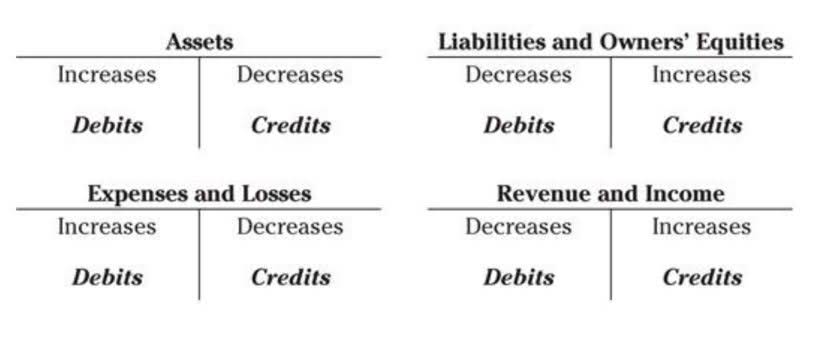Actively participating in these networks can help nonprofits remain compliant and access a community of shared knowledge. A key component of nonprofit reporting is the Form 990, required annually by the IRS for tax-exempt organizations in the United States. This form provides detailed information about the nonprofit’s finances, governance, and programs, serving as a public document that enhances transparency. Financial statements prepared in accounting services for nonprofit organizations accordance with Generally Accepted Accounting Principles (GAAP) require disclosures related to revenue recognition, net asset classification, and contingencies.
Final Thoughts: Know What’s Required And What Builds Trust
- As we approach the final quarter of the year, it’s essential for nonprofits to keep their finances in check.
- Nonprofits operating in Georgia must be aware of these state-specific rules to avoid non-compliance.
- Here is an overview of the key requirements to establish and operate a nonprofit organization in Florida.
- Getting an audit sounds great in theory, but if it is not absolutely required by the government or an important funding source, it might not be worth the money, especially for nonprofits with smaller incomes.
- An independent audit is also essential for validating an organization’s adherence to GAAP and internal controls.
Partner with the experts at Jitasa to make the most of your nonprofit audit experience. Shortly after receiving the report, schedule a leadership team meeting to review it in detail and create an action plan that addresses everything the auditor identified across all relevant areas of your organization. Some of these actions may be simple improvements that add up to make a significant difference in your operations, while others may be more complex changes that will take time and effort to implement. After they receive the items on the PCB list, your auditor will begin conducting the audit. Once it’s done, you’ll receive a letter from your auditor with a report discussing any issues they found and any recommendations they have for your organization.
- The goal is to provide a high level of assurance that the financial statements are free from material misstatement, whether due to fraud or error.
- This doesn’t assure the accuracy of the financial statements but can still offer transparency to stakeholders.
- If your nonprofit organization needs additional funding and you choose to apply for a loan, more often than not, a bank will require an audit of your loan application, and throughout the life of the loan.
- Even well-prepared nonprofit organizations encounter predictable audit challenges that can extend timelines and create findings.
- It is especially relevant for if your nonprofit receives government grants or public funding as the audit will check if you’re following the specific spending guidelines set by the grant providers.
- Our years of experience working exclusively with nonprofits like yours will help you approach audits with confidence and make the most of them.
Nonprofit Audits: Frequently Asked Questions
Nonprofits with revenues between $500,000 and $1,000,000 must undergo a financial review or, if they choose an independent audit (but an audit is not required at this level). These with revenue below $500,000 can choose to have an audit, review or compilation, but it is optional. In a review, a CPA will examine your organization’s financial records, but not as thoroughly as a normal audit.
- Revenue from membership dues and program service fees often involves delivering specific benefits or services.
- Nonprofit audits are usually conducted by independent auditors whose goal is to provide an objective perspective on your nonprofit’s financial management practices and help you improve as needed.
- This proactive approach can help identify and address potential issues before they become significant problems.
- For financial years ending on or after 31 March 2015, once a charity’s income exceeds £250,000 the examiner must be a member of one of the following bodies listed in the 2011 Charities Act.
- It’s a comprehensive process that requires meticulous documentation and adherence to specific guidelines set by the Office of Management and Budget (OMB).
- In most instances, the non-profit must complete registration before engaging in any fundraising or solicitation activities.
- Moreover, an audit is generally unnecessary for small nonprofits because they engage in a low number of financial transactions each year, and the veracity of their books can be checked in cheaper ways.
Compiling reports
Nonprofits play a big role in our society, providing essential services and support in various areas. These requirements can be different depending on the state, and they often depend on how much money the nonprofit makes or whether they receive public funds. Knowing these requirements is crucial https://namesbluff.com/everything-you-should-know-about-accounting-services-for-nonprofit-organizations/ for any nonprofit to stay legal and trusted by the public. Audits provide a thorough examination of financial records, ensuring that all transactions are accurately recorded and reported.
Nonprofit Accounting Terms
The changes allow nonprofits, particularly smaller ones, to allocate more resources to their missions while maintaining the financial transparency expected by donors and regulators. Understanding and adapting to these new rules is crucial for nonprofits to achieve ongoing compliance and effective operation. Fund accounting allows nonprofits to segregate financial resources based on their intended purpose, ensuring accountability and transparency. Separate ledgers for general funds, restricted funds, and endowments enable accurate tracking of resource allocation and expenditure. The statement of activities captures the flow of resources and the fulfillment of the nonprofit’s mission.
By verifying financial practices, audits foster transparency and accountability, which are essential for maintaining donor trust and regulatory compliance. This blog post guides you through the nonprofit audit process, highlights its necessity and impact, and provides practical steps to prepare. By understanding these procedures, your nonprofit can fortify its operations and achieve long-term success. There are two types of financial reporting that nonprofits must adhere to, the financial review and the financial audit. This article is focused on the financial audit, but it is important to understand other types of audits that nonprofits may undergo including internal audits, compliance audits, and program audits.





